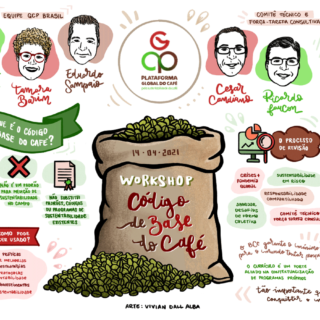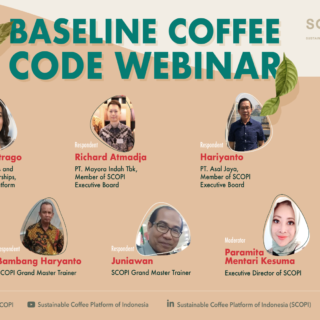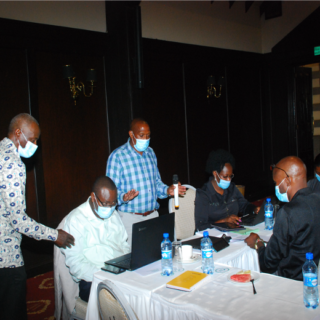
The public consultation, which kicked off in March, finishes today April 30th, and has included multiple online meetings in different languages and physical meetings in coffee-producing countries in their local language such as Brazil, Honduras, Indonesia, Kenya, Nicaragua, Tanzania and Uganda. Bringing together voices from across the coffee value chain the meetings engaged broadly on the revision of the GCP Baseline Coffee Code to gain broad input, diverse expertise and know-how as this key industry reference gets enhanced.
“After a month of great contributions through the survey and online meetings, we’re delighted to be continuing our engagement and listening to the voices of the different actors in the coffee supply chain on what are the foundations to advance sustainability in the coffee sector,” said Gelkha Buitrago, GCP Director Programs and Corporate Partnerships.
“An important part of this process is hearing from coffee stakeholders to improve the GCP Baseline Coffee Code – to ensure it is a strengthened and modernized sector wide reference on the foundations of sustainability in the economic, social and environmental dimensions for coffee production and primary processing worldwide.”
VISIT THE GCP BASELINE COFFEE CODE REVISION ONLINE
Another dimension of the process was to understand how these efforts can complement the work of so many actors that have played a pivotal role in advancing sustainability in origin countries.
Local stakeholders in Indonesia, Brazil, Kenya, Nicaragua, Uganda, Tanzania, Vietnam and Central & South America have already had the opportunity to voice their views on the Baseline Coffee Code and discuss the relevance of this revision for their national sustainability strategies and plans.
“It’s been encouraging to see the diverse and passionate participation during this process,” says Buitrago. “We are confident that the revised GCP Baseline Code will be a fit-for-purpose, sector-wide reference for baseline coffee sustainability while responding to the increasing impacts of a changing climate, farmer profitability, and the global pandemic.”
The public consultation period ends on 30 April 2021, after which the revised code, which has been supported by the GCP Technical Committee and Advisory Task Force, will seek the approval of the GCP Board in July before being published later this year. The final document will be translated in various languages and made available through the GCP website.
The Code will be revised according to this broad public consultation including some key takeaways from GCP’s Network of Country Platforms and the public consultation events held in April:

More than 150 members of the Brazil platform participated in an active and engaging online meeting, with participants representing all parts of the coffee value chain. Discussions included how Members will make use of the Code and the need to work together as a group to tackle bottlenecks facing the production of Brazilian coffee.

In Indonesia, the discussions around the revision included ways to distribute the Baseline Coffee Code and implement it into already existing training programs, where it could be a key tool. The team reported that the Baseline Coffee Code will be a stepping stone for coffee farmers to promote sustainable coffee in Indonesia.

The event in Kenya coincided with new Covid-19 lockdown measures in the country, limiting the number of participants, but this did not stop participants from discussing the biggest challenges facing the coffee sector in Kenya — including the pandemic, its ongoing impacts and the social well-being of coffee communities.

The event in Uganda included a robust discussion on the implications of forthcoming legislation that will impact Ugandan coffee exports. The event was aligned with the platform’s rollout of the National Sustainability Curriculum training with local farmers and allowed participants to provide input particularly on the unacceptable practices and how this might affect them. The team reported to have found great synergy between the National Sustainability Curriculum and the Baseline Coffee Code.

One of the discussions at the event in Vietnam focused on communication and definitions used in the code. Participants impressed that the code should be accessible and understandable to all potential users of the code. This opens the door for future training with farmers on sustainable and safe practices, aligning the Baseline Coffee Code training with other ongoing training initiatives.
